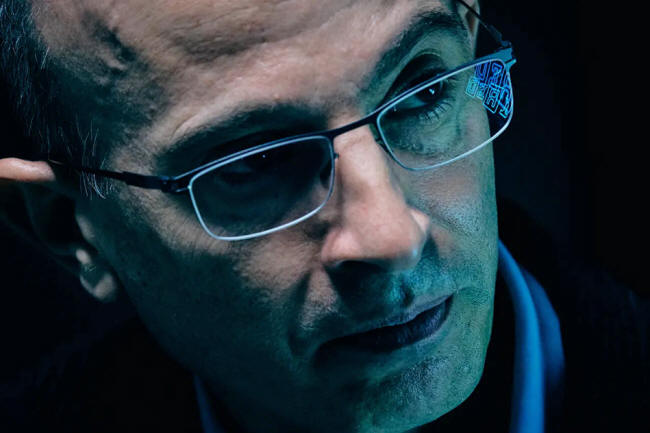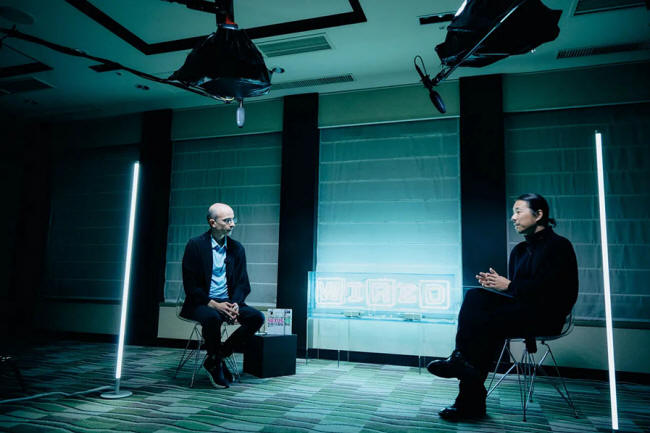WIRED: In the late '90s, when the
internet began to spread, there was a discourse that this would
bring about world peace.
It was thought that with
more information reaching more people, everyone would know the
truth, mutual understanding would be born, and humanity would
become wiser.
WIRED, which has been a
voice of change and hope in the digital age, was part of that
thinking at the time. In your new book, Nexus, you write that
such a view of information is too naive.
Can you explain this?
YUVAL NOAH HARARI: Information is not the same as truth.
Most information is not an accurate
representation of reality. The main role information plays is to
connect many things, to connect people. Sometimes people are
connected by truth, but often it is easier to use fiction or
illusion.
The same is true of the natural world. Most of the information
that exists in nature is not meant to tell the truth. We are
told that the basic information underlying life is DNA, but is
DNA true? No. DNA connects many cells together to make a body,
but it does not tell us the truth about anything.
Similarly, the Bible, one of the most
important texts in human history, has connected millions of
people together, but not necessarily by telling them the truth.
When information is in a complete free market, the vast majority
of information becomes fiction, illusion, or lies. This is
because there are three main difficulties with truth.
First of all, telling the truth is
costly. On the other hand, creating fiction is inexpensive.
If you want to write a truthful account
of history, economics, physics, et cetera, you need to
invest time, effort, and money in gathering evidence and
fact-checking.
With fiction, however, you can simply
write whatever you want.
Second, truth is often complex, because reality
itself is complex. Fiction, on the other hand, can be as
simple as you want it to be.
And finally, truth is often painful and unpleasant.
Fiction, on the other hand, can be made as pleasant and
appealing as possible.
Thus, in a completely free information
market, truth would be overwhelmed and buried by the sheer
volume of fiction and illusion.
If we want to get to the truth, we must make
a special effort to repeatedly try to uncover the facts. This is
exactly what has happened with the spread of the internet. The
internet was a completely free marketplace of information.
Therefore, the expectation that the internet
would spread facts and truths, and spread understanding and
consensus among people, quickly proved to be naive.
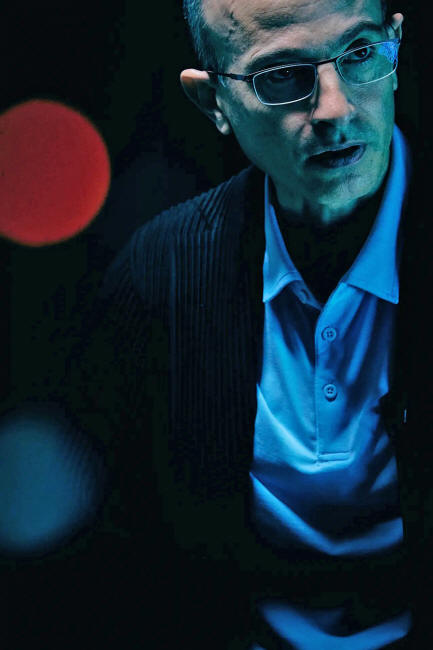
Photograph:
Shintaro Yoshimatsu
In a recent interview with The New Yorker,
Bill Gates said, "I always thought that digital technology
empowers people, but social networking is something completely
different.
We were slow to realize
that. And AI is something completely different as well."
If AI is unprecedented,
what, if anything, can we learn from the past?
There are many things we can learn from history.
First, knowing history helps us understand
what new things AI has brought. Without knowing the history, we
cannot properly understand the novelty of the current situation.
And the most important point about AI is that
it is an agent, not just a tool.
Some people often equate the AI revolution with the printing
revolution, the invention of the written word, or the emergence
of mass media such as radio and television, but this is a
misunderstanding. All previous information technologies were
mere tools in the hands of humans.
Even when the printing press was invented, it
was still humans who wrote the text and decided which books to
print. The printing press itself cannot write anything, nor can
it choose which books to print.
AI, however, is fundamentally different: It is an agent; it can
write its own books and decide which ideas to disseminate. It
can even create entirely new ideas on its own, something that
has never been done before in history.
We humans have never faced a superintelligent
agent before.
Of course, there have been actors in the past. Animals are one
example. However, humans are more intelligent than animals,
especially in the area of connection, in which they are
overwhelmingly superior. In fact, the greatest strength of Homo
sapiens is not its individual capabilities.
On an individual level, I am not stronger
than a chimpanzee, an elephant, or a lion. If a small group, say
10 humans and 10 chimpanzees, were to fight, the chimpanzees
would probably win.
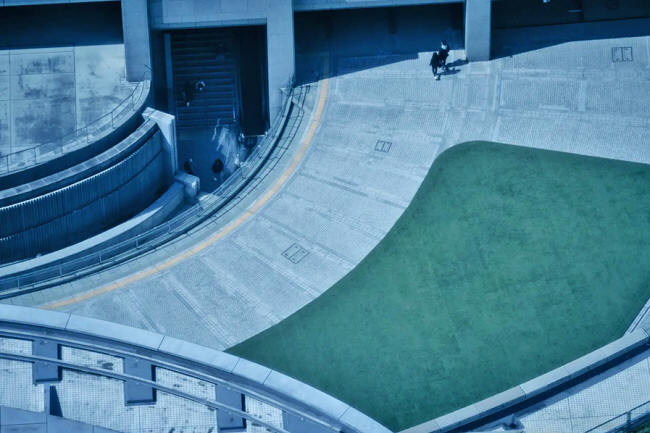
Photograph: Shintaro
Yoshimatsu
So why do humans dominate the planet?
It is because humans can create networks of
thousands, millions, and even billions of people who do not know
each other personally but can cooperate effectively on a huge
scale.
Ten chimpanzees can cooperate closely with
each other, but 1,000 chimpanzees cannot. Humans, on the other
hand, can cooperate not with 1,000 individuals, but with a
million or even a hundred million.
The reason why human beings are able to cooperate on such a
large scale is because we can create and share stories. All
large-scale cooperation is based on a common story. Religion is
the most obvious example, but financial and economic stories are
also good examples.
Money is perhaps the most successful story in
history.
Money is just a story. The bills and coins
themselves have no objective value, but we believe in the same
story about money that connects us and allows us to cooperate.
This ability has given humans an advantage
over chimpanzees, horses, and elephants. These animals cannot
create a story like money.
But AI can. For the first time in history, we share the planet
with beings that can create and network stories better than we
can.
The biggest question facing humanity today
is:
How do we share the planet with this new
superintelligence?
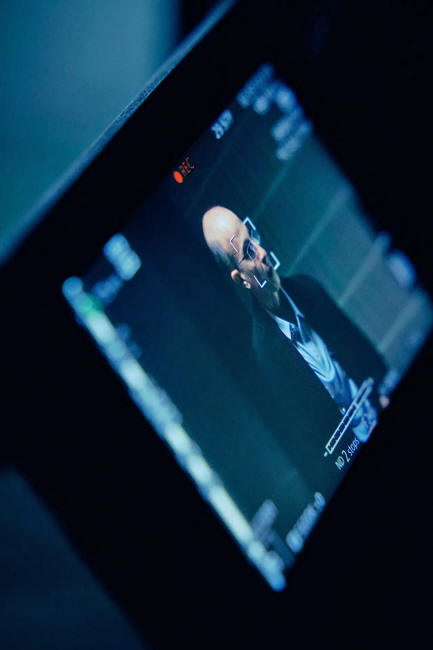
Photograph: Shintaro
Yoshimatsu
How should we think about this new era of
superintelligence?
I think the basic attitude toward the AI revolution is to avoid
extremes.
At one end of the spectrum is the fear that
AI will come along and destroy us all, and at the other end is
optimism that AI will improve health care, improve education,
and create a better world.
What we need is a middle path. First and foremost, we need to
understand the scale of this change. Compared to the AI
revolution we are facing now, all previous revolutions in
history will pale in comparison.
This is because throughout history, when
humans invented something, it was always they who made the
decisions about how to use it to create a new society, a new
economic system, or a new political system.
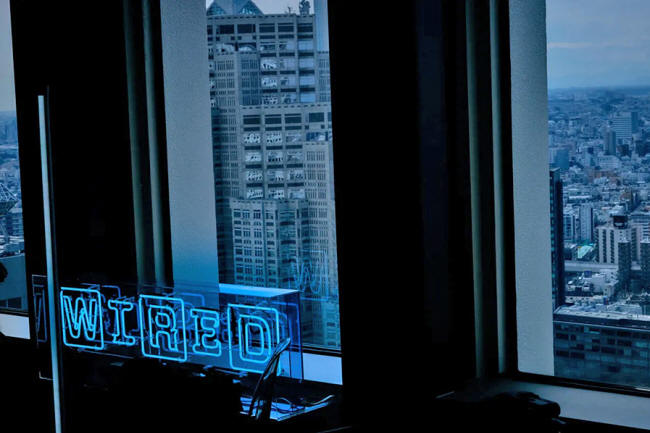
Photograph: Shintaro
Yoshimatsu
Consider, for example, the Industrial
Revolution of the 19th century.
At that time, people invented steam engines,
railroads, and steamships.
Although this revolution transformed the
productive capacity of economies, military capabilities, and
geopolitical situations, and brought about major changes
throughout the world, it was ultimately people who decided how
to create industrial societies.
As a concrete example, in the 1850s, the US commodore Matthew C.
Perry came to Japan on a steamship and forced Japan to accept US
trade terms. As a result, Japan decided: Let's industrialize
like the US.
At that time, there was a big debate in Japan
over whether to industrialize or not, but the debate was only
between people. The steam engine itself did not make any
decision.
This time, however, in building a new society based on AI,
humans are not the only ones making decisions. AI itself may
have the power to come up with new ideas and make decisions.
What if AI had its own money, made its own decisions about how
to spend it, and even started investing it in the stock market?
In that scenario, to understand what is
happening in the financial system, we would need to understand
not only what humans are thinking, but also what AI is thinking.
Furthermore, AI has the potential to generate
ideas that are completely incomprehensible to us.
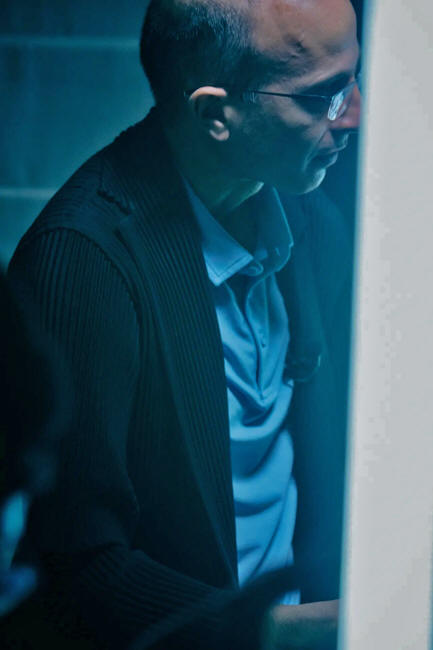
Photograph: Shintaro
Yoshimatsu
I would like to clarify what you think about
the singularity, because I often see you spoken of as being
"anti-singularity."
However, in your new book,
you point out that AI is more creative than humans and that it
is also superior to humans in terms of emotional intelligence.
I was particularly struck by your statement that the root of all
these revolutions is the computer itself, of which the internet
and AI are only derivatives.
WIRED just published a
series on quantum computers, so to take this as an example: If
we are given a quantum leap in computing power in the future, do
you think that a singularity, a reordering of the world order by
superintelligence, is inevitable?
That depends on how you define singularity.
As I understand it, singularity is the point
at which we no longer understand what is happening out there. It
is the point at which our imagination and understanding cannot
keep up. And we may be very close to that point.
Even without a quantum computer or fully-fledged artificial
general intelligence - that is, AI that can rival the
capabilities of a human - the level of AI that exists today may
be enough to cause it.
People often think of the AI revolution in
terms of one giant AI coming along and creating new inventions
and changes, but we should rather think in terms of networks.
What would happen if millions or tens of
millions of advanced AIs were networked together to bring about
major changes in economics, military, culture, and politics?
The network will create a completely
different world that we will never understand. For me,
singularity is precisely that point - the point at which our
ability to understand the world, and even our own lives, will be
overwhelmed.
If you ask me if I am for or against singularity, first and
foremost I would say that I am just trying to get a clear
understanding of what is going on right now. People often want
to immediately judge things as good or bad, but the first thing
to do is to take a closer look at the situation.
Looking back over the past 30 years,
technology has done some very good things and some very bad
things. It has not been a clear-cut "just good" or "just bad"
thing.
This will probably be the same in the future.
The one obvious difference in the future, however, is that when
we no longer understand the world, we will no longer control our
future. We will then be in the same position as animals.
We will be like the horse or the elephant
that does not understand what is happening in the world. Horses
and elephants cannot understand that human political and
financial systems control their destiny.
The same thing can happen to us humans.
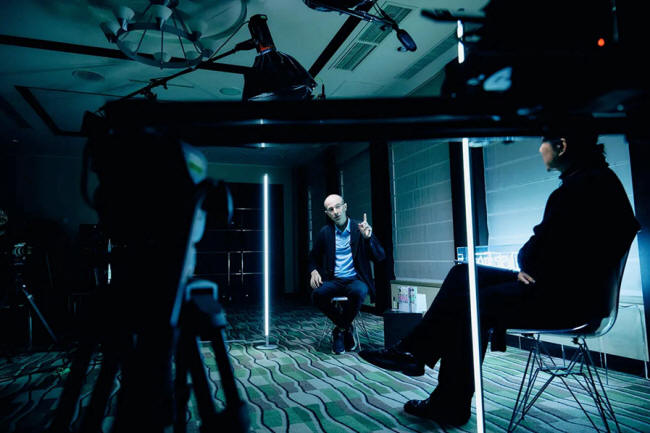
Photograph: Shintaro
Yoshimatsu
You've said, "Everyone talks about the
'post-truth' era, but was there ever a 'truth' era in history?"
Could you explain what you
mean by this?
We used to understand the world a little better, because it was
humans who managed the world, and it was a network of humans.
Of course, it was always difficult to
understand how the whole network worked, but at least as a human
being myself, I could understand kings, emperors, and high
priests.
They were human beings just like me. When the
king made a decision, I could understand it to some extent,
because all the members of the information network were human
beings.
But now that AI is becoming a major member of
the information network, it is becoming increasingly difficult
to understand the important decisions that shape our world.
Perhaps the most important example is finance. Throughout
history, humans have invented increasingly sophisticated
financial mechanisms. Money is one such example, as are stocks
and bonds. Interest is another financial invention.
But what is the purpose of inventing these
financial mechanisms?
It is not the same as inventing the wheel or
the automobile, nor is it the same as developing a new kind of
rice that can be eaten.
The purpose of inventing finance, then, is to create trust and
connection between people. Money enables cooperation between you
and me. You grow rice and I pay you.
Then you give me the rice and I can eat it.
Even though we do not know each other personally, we both trust
money. Good money builds trust between people.
Finance has built a network of trust and cooperation that
connects millions of people. And until now, it was still
possible for humans to understand this financial network.
This is because all financial mechanisms
needed to be humanly understandable. It makes no sense to invent
a financial mechanism that humans cannot understand, because it
cannot create trust.
But AI may invent entirely new financial mechanisms that are far
more complex than interest, bonds, or stocks. They will be
mathematically extremely complex and incomprehensible to humans.
AI itself, on the other hand, can understand
them. The result will be a financial network where AIs trust
each other and communicate with each other, and humans will not
understand what is happening.
We will lose control of the financial system
at this point, and everything that depends on it.
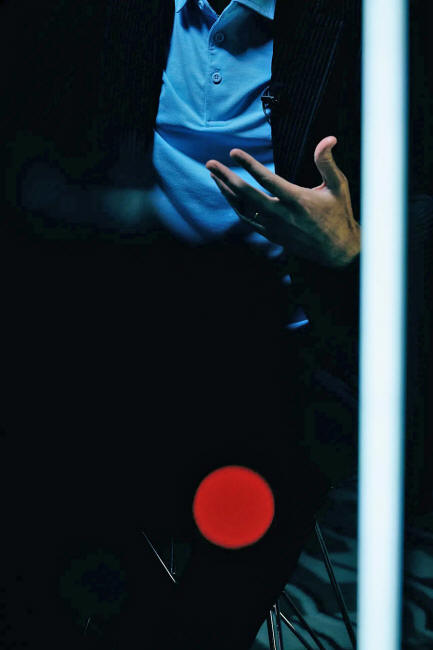
Photograph: Shintaro
Yoshimatsu
So AI can build networks of trust that we
can't understand. Such incomprehensible things are known as "hyperobjects."
For example, global climate
change is something that humans cannot fully grasp the
mechanisms or full picture of, but we know it will have a
tremendous impact and that we therefore must confront and adapt
to it.
AI is another hyperobject
that humanity will have to deal with in this century. In your
book, you cite human flexibility as one of the things needed to
deal with big challenges.
But what does it actually
mean for humanity to deal with hyperobjects?
Ideally, we would trust AI to help us deal with these
hyperobjects - realities that are so complex that they are
beyond our comprehension.
But perhaps the biggest question in the
development of AI is: How do we make AI, which can be more
intelligent than humans, trustworthy? We do not have the answer
to that question.
I believe the biggest paradox in the AI revolution is the
paradox of trust - that is, that we are now rushing to develop
superintelligent AI that we do not fully trust. We understand
that there are many risks.
Rationally, it would be wise to slow down the
pace of development, invest more in safety, and create safety
mechanisms first to make sure that superintelligent AIs do not
escape our control or behave in ways that are harmful to humans.
However, the opposite is actually happening today.
We are in the midst of an accelerating AI
race. Various companies and nations are racing at breakneck
speed to develop more powerful AIs. Meanwhile, little investment
has been made to ensure that AI is secure.
Ask the entrepreneurs, businesspeople, and government leaders
who are leading this AI revolution, "Why the rush?" and nearly
all of them answer:
"We know it's risky, for sure. We know
it's dangerous.
We understand that it would be wiser to
go slower and invest in safety. But we cannot trust our
human competitors.
If other companies and countries
accelerate their development of AI while we are trying to
slow it down and make it safer, they will develop
superintelligence first and dominate the world.
So we have no choice but to move forward
as fast as possible to stay ahead of the unreliable
competition."
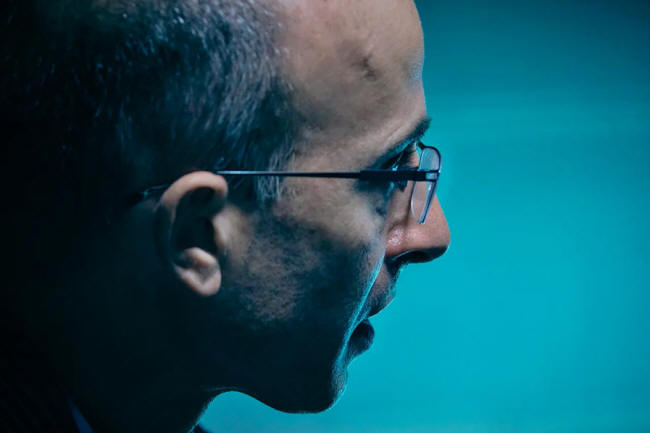
Photograph: Shintaro
Yoshimatsu
But then I asked those responsible for AI a second question:
"Do you think we can trust the
superintelligence you are developing?"
Their the answer was:
"Yes."
This is almost insane. People who don't even
trust other humans somehow think they can trust this alien AI.
We have thousands of years of experience with humans. We
understand human psychology and politics. We understand the
human desire for power, but we also have some understanding of
how to limit that power and build trust among humans.
In fact, over the past few thousand years,
humans have developed quite a lot of trust. 100,000 years ago,
humans lived in small groups of a few dozen people and could not
trust outsiders.
Today, however, we have huge nations, trade
networks that extend around the world, and hundreds of millions,
even billions, of people who trust each other to some extent.
We know that AI is a doer, that it makes its own decisions,
creates new ideas, sets new goals, creates tricks and lies that
humans do not understand, and may pursue alien goals beyond our
comprehension. We have many reasons to be suspicious of AI.
We have no experience with AI, and we do not
know how to trust it.
I think it is a huge mistake for people to assume that they can
trust AI when they do not trust each other.
The safest way to develop superintelligence
is to first strengthen trust between humans, and then cooperate
with each other to develop superintelligence in a safe manner.
But what we are doing now is exactly the opposite.
Instead, all efforts are being directed
toward developing a superintelligence.
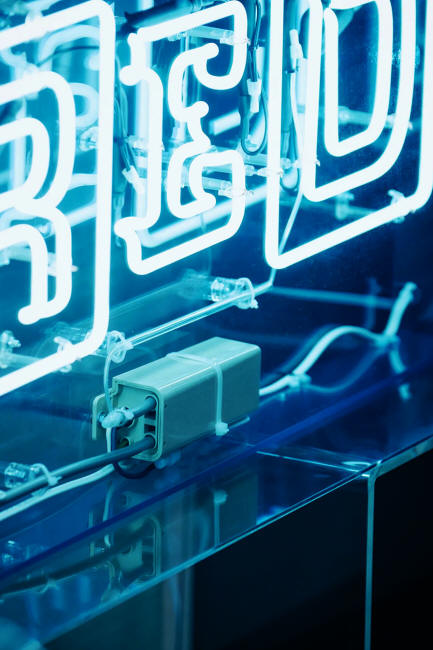
Some WIRED readers with a libertarian mindset
may have more faith in superintelligence than in humans, because
humans have been fighting each other for most of our history.
You say that we now have
large networks of trust, such as nations and large corporations,
but how successful are we at building such networks, and will
they continue to fail?
It depends on the standard of expectations we have.
If we look back and compare humanity today to
100,000 years ago, when we were hunter-gatherers living in small
herds of a few dozen people, we have built an astonishingly
large network of trust.
We have a system in which hundreds of
millions of people cooperate with each other on a daily basis.
Libertarians often take these mechanisms for granted and refuse
to consider where they come from. For example, you have
electricity and drinking water in your home.
When you go to the bathroom and flush the
water, the sewage goes into a huge sewage system. That system is
created and maintained by the state.
But in the libertarian mindset, it is easy to
take for granted that you just use the toilet and flush the
water and no one needs to maintain it. But of course, someone
needs to.
There really is no such thing as a perfect free market. In
addition to competition, there always needs to be some sort of
system of trust.
Certain things can be successfully created by
competition in a free market, however, there are some services
and necessities that cannot be sustained by market competition
alone. Justice is one example.
Imagine a perfect free market. Suppose I enter into a business
contract with you, and I break that contract. So we go to court
and ask the judge to make a decision. But what if I had bribed
the judge? Suddenly you can't trust the free market.
You would not tolerate the judge taking the
side of the person who paid the most bribes. If justice were to
be traded in a completely free market, justice itself would
collapse and people would no longer trust each other.
The trust to honor contracts and promises
would disappear, and there would be no system to enforce them.
Therefore, any competition always requires some structure of
trust. In my book, I use the example of the World Cup of soccer.
You have teams from different countries
competing against each other, but in order for competition to
take place, there must first be agreement on a common set of
rules. If Japan had its own rules and Germany had another set of
rules, there would be no competition.
In other words,
even competition requires a foundation of
common trust and agreement.
Otherwise, order itself will collapse.
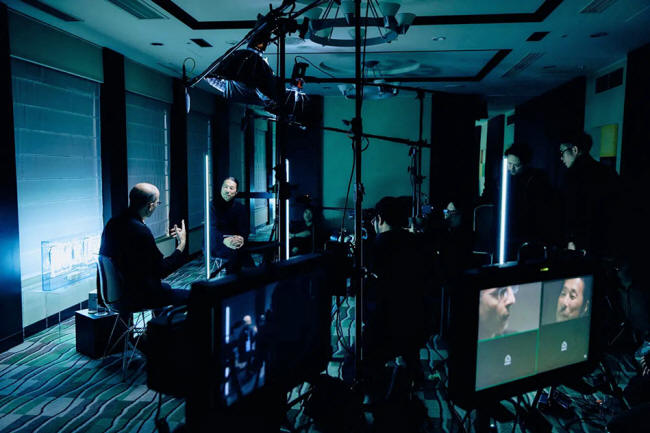
Photograph: Shintaro
Yoshimatsu
In Nexus, you note that the mass media made
mass democracy possible - in other words, that information
technology and the development of democratic institutions are
correlated.
If so, in addition to the
negative possibilities of populism and totalitarianism, what
opportunities for positive change in democracies are possible?
In social media, for example, fake news, disinformation, and
conspiracy theories are deliberately spread to destroy trust
among people.
But algorithms are not necessarily the
spreaders of fake news and conspiracy theories. Many have
achieved this simply because they were designed to do so.
The purpose the algorithms of Facebook, YouTube, and TikTok is
to maximize user engagement. The easiest way to do this, it was
discovered after much trial and error, was to spread information
that fueled people's anger, hatred, and desire.
This is because when people are angry, they
are more inclined to pursue the information and spread it to
others, resulting in increased engagement.
But what if we gave the algorithm a different purpose? For
example, if you give it a purpose such as increasing trust among
people or increasing truthfulness, the algorithm will never
spread fake news.
On the contrary, it will help build a better
society, a better democratic society.
Another important point is that democracy should be a dialogue
between human beings. In order to have a dialogue, you need to
know and trust that you are dealing with a human being.
But with social media and the internet, it is
increasingly difficult to know whether the information you are
reading is really written and disseminated by humans or just
bots.
This destroys trust between humans and makes
democracy very difficult.
To address this, we could have regulations and laws prohibiting
bots and AI from pretending to be human. I don't think AI itself
should be banned at all; AI and bots are welcome to interact
with us, but only if they make it clear that they are AI and not
human.
When we see information on Twitter, we need
to know whether it is being spread by a human or a bot.
Some people may say,
"Isn't that a violation of freedom of
expression?"
But bots do not have freedom of expression.
While I firmly oppose censorship of human
expression, this does not protect the expression of bots.
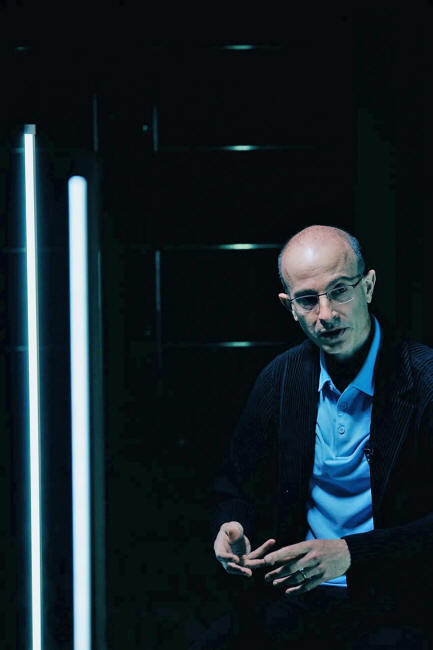
Photograph: Shintaro
Yoshimatsu
Will we become smarter or reach better
conclusions by discussing topics with artificial intelligence in
the near future?
Will we see the kind of
creativity that humans can't even conceive of, as in the case of
AlphaGo, which you also describe in your new book, in classroom
discussions, for example?
Of course it can happen.
On the one hand, AI can be very creative and
come up with ideas that we would never have thought of. But at
the same time, AI can also manipulate us by feeding us vast
amounts of junk and misleading information.
The key point is that we humans are stakeholders in society. As
I mentioned earlier with the example of the sewage system, we
have a body.
If the sewage system collapses, we become
sick, spreading diseases such as dysentery and cholera, and in
the worst case, we die. But that is not a threat at all to AI,
which does not care if the sewage system collapses, because it
will not get sick or die.
When human citizens debate, for example,
whether to allocate money to a government agency to manage a
sewage system, there is an obvious vested interest.
So while AI can come up with some very novel
and imaginative ideas for sewage systems, we must always
remember that AI is not human or even organic to begin with.
It is easy to forget that we have bodies, especially when we are
discussing cyberspace.
What makes AI different from humans is not
only that its imagination and way of thinking, which are alien,
but also that its body itself is completely different from ours.
Ultimately, AI is also a physical being; it
does not exist in some purely mental space, but in a network of
computers and servers.

Photograph: Shintaro
Yoshimatsu
What is the most important thing to consider
when thinking about the future?
I think there are two important issues.
One is the issue of trust, which has been
the subject of much discussion up to this point.
We are now
in a situation where trust between human beings is at stake.
This is the greatest danger. If we can
strengthen trust between humans, we will be better able to
cope with the AI revolution.
The second is the threat of being completely manipulated or
misdirected by AI.
In the early internet days, the primary
metaphor for technology was the Web. The World Wide Web was
envisioned as a spiderweb-like network connecting people to
each other.
Today, however, the primary metaphor is the
cocoon.
People are increasingly living in individual
cocoons of information. People are bombarded with so much
information that they are blind to the reality around them.
People are trapped in different information cocoons.
For the first time in history, a nonhuman
entity, an AI, is able to create such a cocoon of information.
Throughout history, people have lived in a human cultural
cocoon. Poetry, legends, myths, theater, architecture, tools,
cuisine, ideology, money, and all the other cultural products
that have shaped our world have all come from the human mind. In
the future, however, many of these cultural products will come
from nonhuman intelligence.
Our poems, videos, ideologies, and money will
come from nonhuman intelligence. We may be trapped in such an
alien world, out of touch with reality.
This is a fear that humans have held deep in
their hearts for thousands of years. Now, more than ever, this
fear has become real and dangerous.
For example, Buddhism speaks of the concept of māyā - illusion,
hallucination.
With the advent of AI, it may be even more
difficult to escape from this world of illusion than before. AI
is capable of flooding us with new illusions, illusions that do
not even originate in the human intellect or imagination.
We will find it very difficult to even
comprehend the illusions.
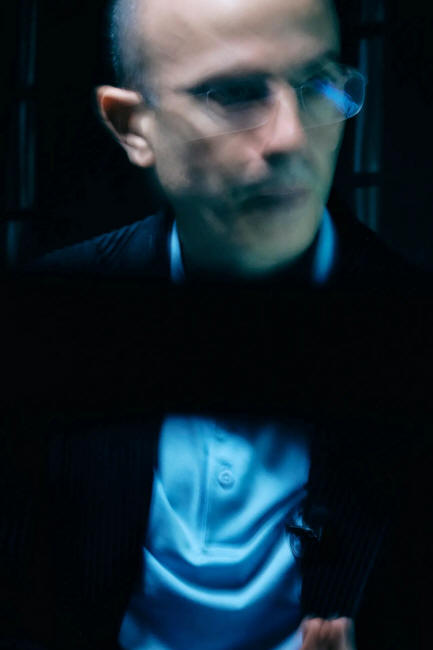
Photograph: Shintaro
Yoshimatsu
You mention "self-correcting mechanisms" as an
important function in maintaining democracy. I think this is
also an important function to get out of the cocoon and in
contact with reality.
On the other hand, in your
book, you write that the performance of the human race since the
Industrial Revolution should be graded as "C minus," or just
barely acceptable.
If that is the case, then
surely we cannot expect much from the human race in the coming
AI revolution?
When a new technology appears, it is not necessarily bad in
itself, but people do not yet know how to use it beneficially.
The reason why they don't know is that we
don't have a model for it.
When the Industrial Revolution took place in the 19th century,
no one had a model for how to build a "good industrial society"
or how to use technologies such as steam engines, railroads, and
telegraphs for the benefit of humanity. Therefore, people
experimented in various ways.
Some of these experiments, such as the
creation of modern imperialism and totalitarian states, had
disastrous results.
This is not to say that AI itself is bad or harmful. The real
problem is that we do not have a historical model for building
an AI society.
Therefore, we will have to repeat
experiments.
Moreover, AI itself will now make its own
decisions and conduct its own experiments. And some of these
experiments may have terrible results.
That is why we need a self-correcting mechanism - a mechanism
that can detect and correct errors before something fatal
happens. But this is not something that can be tested in a
laboratory before introducing AI technology to the world.
It is impossible to simulate history in a
laboratory.
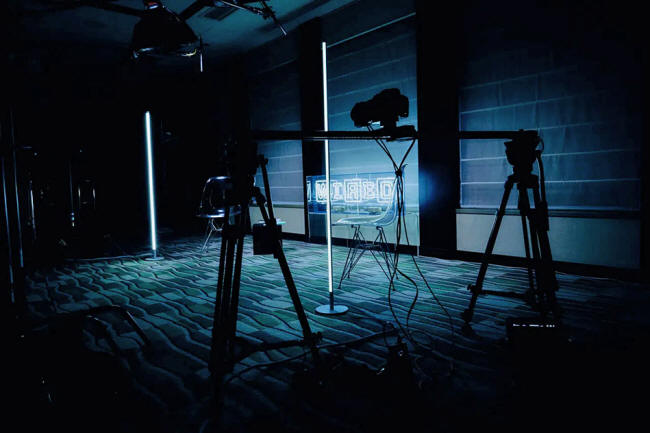
For example, let's consider the railroad being invented.
In a laboratory, people were able to see if steam engines would
explode due to a malfunction. But no one could simulate the
changes they would bring to the economic and political situation
when the rail network spread out over tens of thousands of
kilometers.
The same is true of AI.
No matter how many times we experiment with
AI in the laboratory, it will be impossible to predict what will
happen when millions of superintelligences are unleashed on the
real world and begin to change the economic, political, and
social landscape.
Almost certainly, there will be major
mistakes.
That is why we should proceed more carefully
and more slowly. We must allow ourselves time to adapt, time to
discover, and correct our mistakes.


